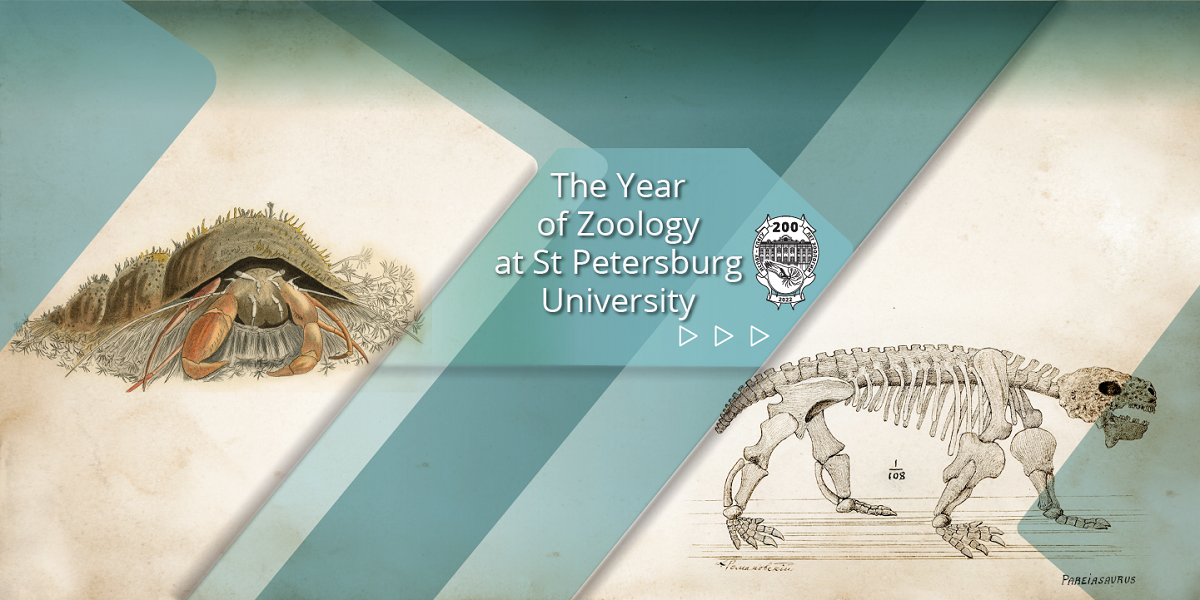St Petersburg University launches the Year of Zoology
St Petersburg University has launched the Year of Zoology. The celebration is timed to mark two anniversaries of zoological education at St Petersburg University. This year marks the 200th anniversary of the first department of zoology at the University. St Petersburg University also marks the 150th anniversary of the official division of the Department into two separate scientific and educational subdivisions — the Department of Invertebrate Zoology and the Department of Vertebrate Zoology.

In Russia, the first department of zoology was established in 1822, when Andrei Rzhevsky, a disciple of the French naturalist Georges Cuvier, was appointed as the first full professor of zoology and began to lecture in zoology to students of St Petersburg Imperial University.
This was an innovation for higher education institutions in Russia. Never before had Russian students been taught a separate course in "zoology". Although universities in Moscow, Kazan and Kharkov already had natural science departments, they mostly taught general biology and mineralogy.
St Petersburg Imperial University introduced zoology as an independent academic discipline. The Department of Zoology initiated such scientific schools as ecological parasitology, ornithology, palaeontology and protistology (study of unicellular organisms). It also launched the first systematic study of living organisms inhabiting the Arctic seas that adjoined Russia. The first marine biostation on Bolshoy Solovetsky Island was also established on the initiative of zoologists of St Petersburg Imperial University in 1881.
The Departments of Vertebrate and Invertebrate Zoology are unique teaching and research subdivisions which, after 150 years, retain a historical tradition of teaching, dedication to science and a visionary outlook. Specialists of the departments continue to work in the same classrooms where famous scientists, including Stepan Kutorga, Karl Kessler and Ilya Mechnikov, worked many years ago. The departments hold archives and zoological collections, started over a century and a half ago. Modern specialists bring a lot of new ideas to the work of the Departments, especially in research methods and methodologies.
Andrey Granovitch, Professor of St Petersburg University, Head of the Department of Invertebrate Zoology
Specimens collected by researchers during scientific expeditions became part of the collection of the Zoological Cabinet. It had been part of the Department of Zoology since its foundation. Over 150 years ago, in December 1871, it was divided into the Zoological and Zootomical Cabinets. This signalled the foundation of two separate departments at the University — the Zoology of Invertebrates and the Zoology of Vertebrates, which continue their work at St Petersburg University to the present day.
Celebration of the double anniversary of zoological education at St Petersburg University is scheduled for the year of 2022. To commemorate the anniversaries, the University has planned: a scientific and historical session "Zoology at St Petersburg University: History and Modernity"; Dogiel readings; an art exhibition "200 Years of Zoology at St Petersburg University"; tours of the Departments of Vertebrate and Invertebrate Zoology; and a presentation of a book about Russian protistologist Vladimir Shevyakov.

